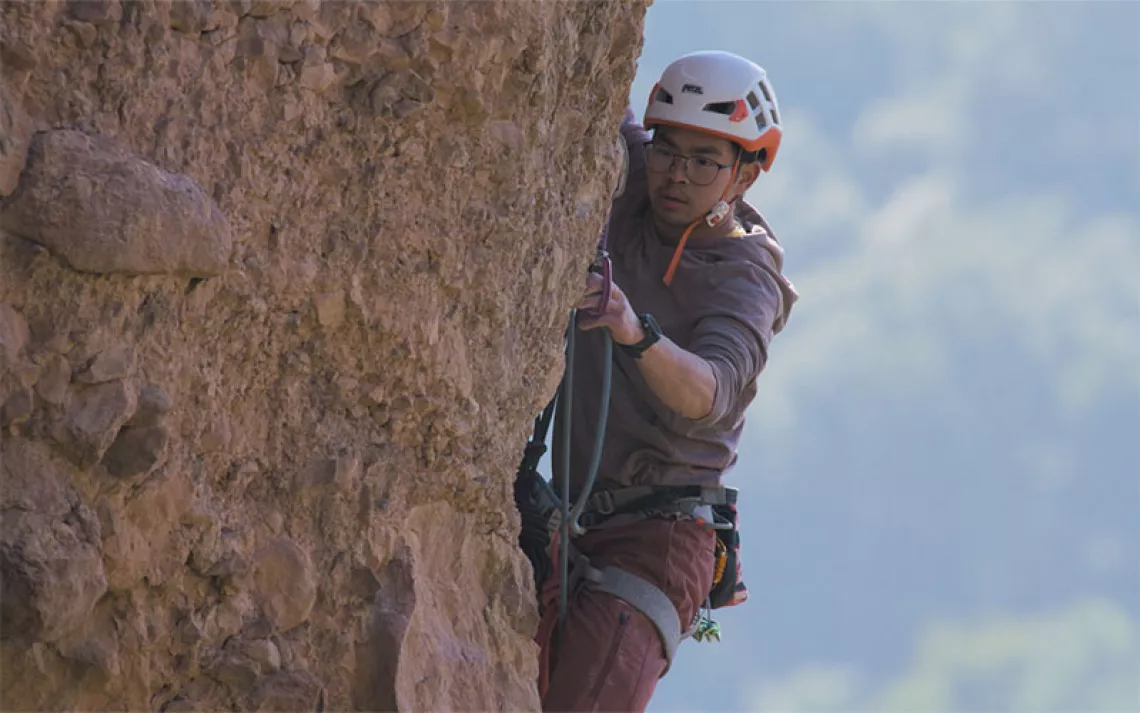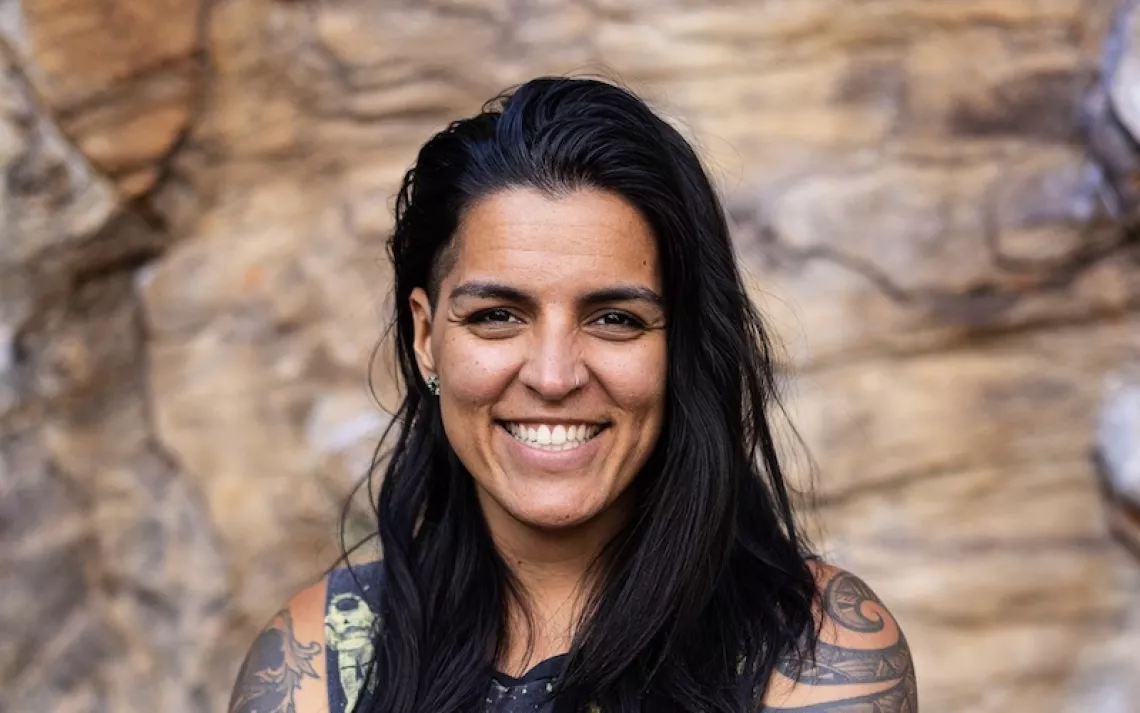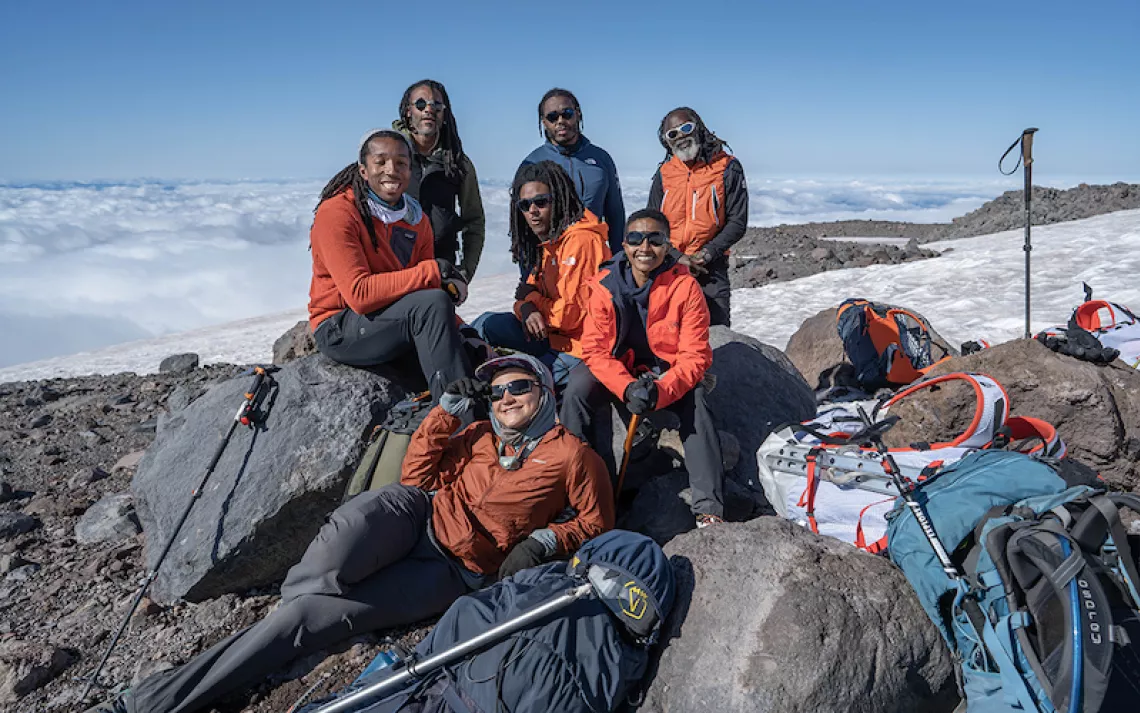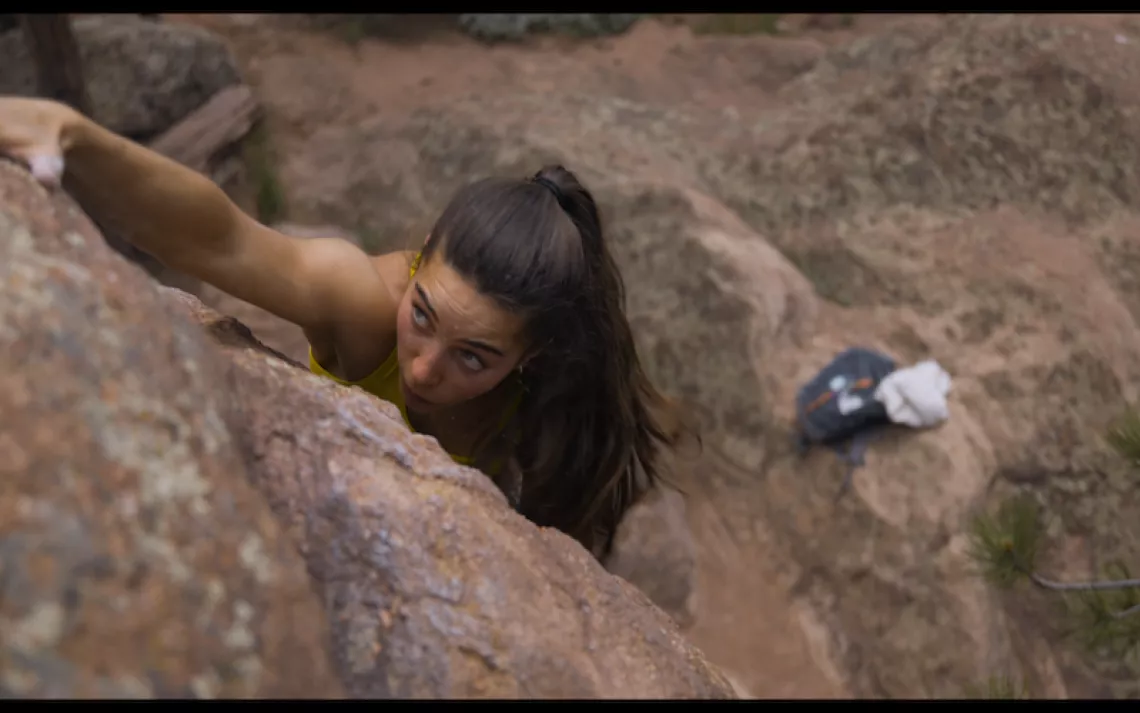Veteran and Amputee Chad Jukes Reaches for Higher Ground
Paradox Sports ambassador says the key to rehabilitation is getting outside
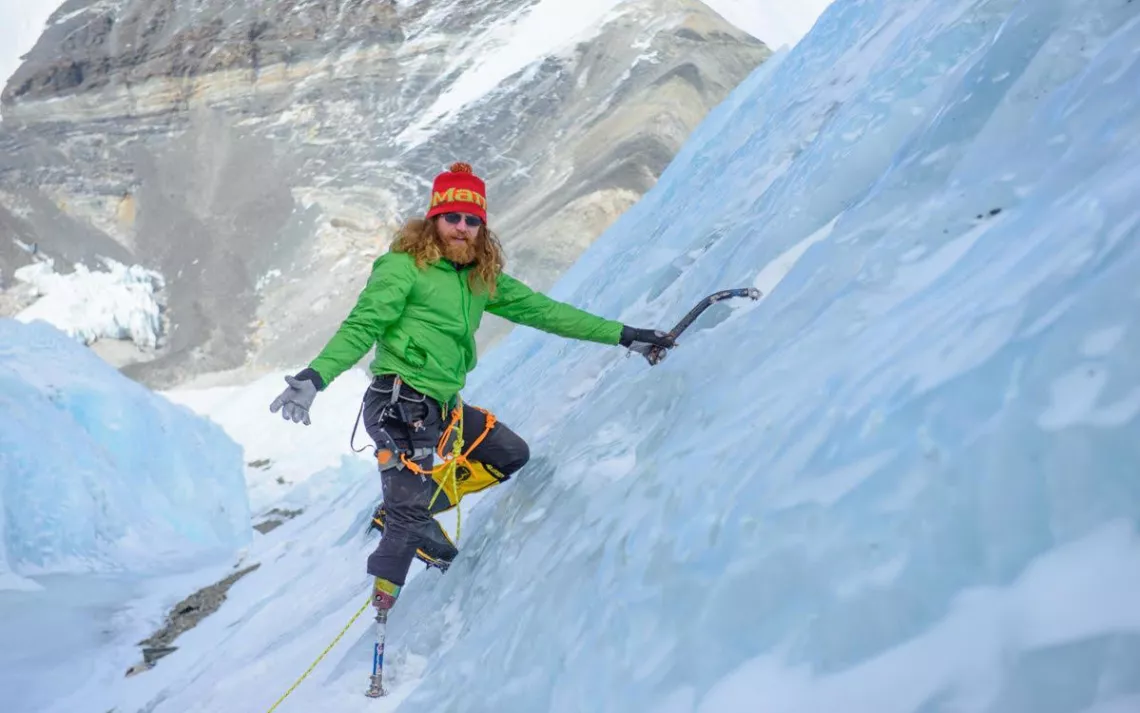
Courtesy of Paradox Sports
At age 19, Chad Jukes was deployed for an eight-month tour in Afghanistan. Two years later, in 2006, he was deployed again, this time to northern Iraq. It was there on December 17, 2006, that a truck Chad was driving while running convoy security operations ran over a buried anti-tank mine. The resulting explosion severely injured his right heel bone, leaving Jukes to face a sudden and difficult decision: whether or not to amputate his right leg.
“The doctors could’ve worked on rebuilding my heel bone, but it would have never been perfect,” recalls Jukes, who grew up hiking, mountain biking, and climbing. “They were saying that I would probably never be able to run, and that I would be on pain medications for the rest of my life.”
Seeking counsel, Jukes posted his situation to an online forum called the Amputee Climbing Organization. Within the hour, he heard from Malcolm Daly, executive director of the adaptive outdoor recreation organization Paradox Sports. Daly, who had his own right leg amputated below the knee as a result of a 1999 climbing injury, assured Jukes that if he underwent amputation, he, too, would still be able to climb. “I grew up in the outdoors—it was very important to me that I could keep doing the things that I loved,” he says.
Three months after his injury, on March 21, 2007, Jukes underwent below-the-knee amputation. By May, he was out on the cliff faces of Boulder, Colorado, climbing alongside Daly and other members of Paradox Sports. Jukes regularly embarks on climbing expeditions ranging anywhere from two weeks to two months long.
Since joining Paradox Sports as an ambassador, Jukes has unearthed a new passion: ice climbing. “I remember the first time Paradox invited me to go ice climbing. In my mind it was the most dangerous, ridiculous, stupid thing anyone could ever dream of, but oh my goodness, the experience was so amazing,” he recalls.” By the end of the first day, I was buying boots and crampons—I was hooked, to say the very least.”
Data from the U.S. Army Surgeon General’s Office shows that 1,572 soldiers who served in the Iraq and Afghanistan wars underwent major limb amputations—83 percent of whom lost one or both legs. Average rehab time for these soldiers ranged from nine to 16 months.
For Jukes, the key to recovery was all about getting outside. As a public speaker on behalf of Paradox Sports, he often discusses the importance of the outdoors for rehabilitation, the possibilities that prosthetic surgery could offer the developing world, and how Veterans Expeditions, a veteran-led nonprofit, teaches people with disabilities how to climb. “I want to help them realize that they can get back out there, they can get outside, they can live a productive life,” he says. “I used to think that amputation was this terrible, sad thing, but it isn’t—or at least, it doesn’t have to be.” Jukes describes his own realization that amputation could be freeing and empowering as “paradoxical.”
Since becoming an ambassador, he’s also discovered a love for adventure instruction. “For me, the best is when I’m out with someone who has never climbed anything in their life,” he says. “When I get to see that spark in somebody’s eyes when they start to figure things out and really have fun, it’s amazing. Teaching has been the best thing for me—my favorite thing, really.”
Jukes prefers to climb with others. A few years ago, he joined a group of fellow Iraq and Afghanistan war veterans to summit Nepal’s 20,000-foot-tall Mount Lobuche—a journey that became the subject of the 2012 documentary High Ground. “I think that when I climb with other amputees, and when people see me climb, they realize that you can do whatever you want to do, more or less,” says Jukes, who admits that there are some things he can no longer do. “I can’t run quite as fast as I used to, for example,” he says. “But I think the big thing is realizing that it doesn’t really matter all that much. Yeah, I’m disabled, but apparently I can still climb really big mountains.”
Not only can Jukes scale big mountains, but he is also one of the first disabled veterans to do so. In 2016, he became the second combat-wounded veteran to summit Mt. Everest—but that’s not what keeps him climbing. “I’m not very big on titles,” he says. “I’m not looking to set records. I’m not trying to beat anybody. If anything, I want to share what’s possible, and break down people’s perceptions about disability.”
Next up for Jukes? Ascending the peaks of Alaska’s Denali National Park. He also hopes to one day complete climbs in Latin America, Asia, India, Africa, Pakistan, and Afghanistan. “I want to keep going until my body just absolutely falls apart,” he says. I haven’t gotten bored yet, so I’m not going to stop.”
 The Magazine of The Sierra Club
The Magazine of The Sierra Club
